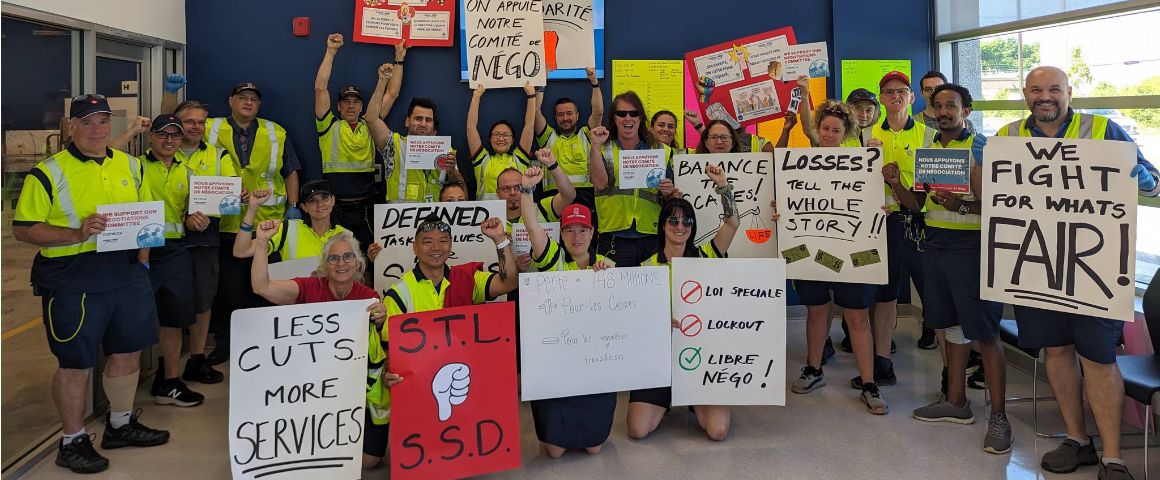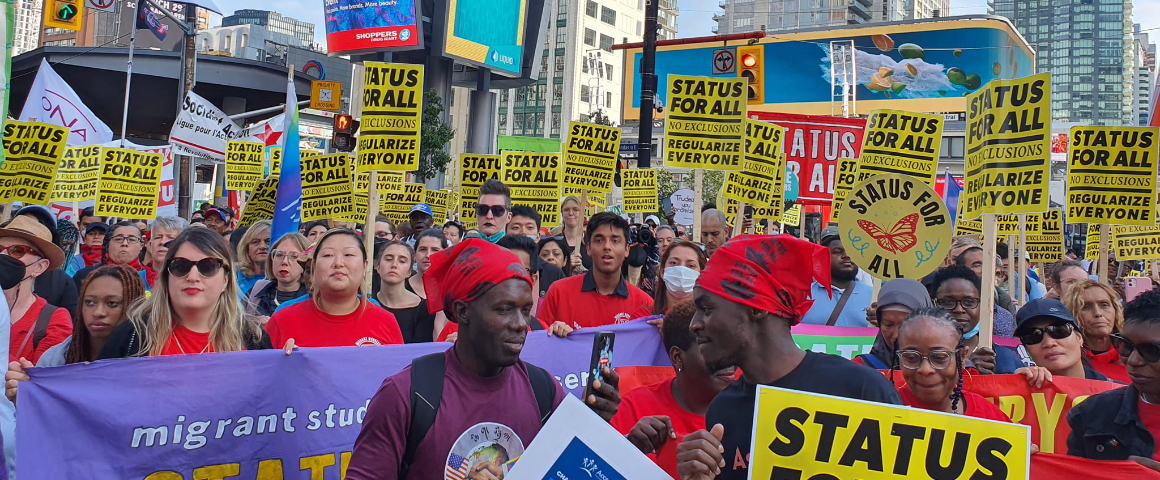Tens of thousands defy business union leadership to strike for fair wages
By PV Ontario Bureau
In a clear indication of growing restlessness among workers, 43,000 construction workers have struck across Ontario. Major unions in the sector have turned down agreements that have been recommended by their union leaderships to bring most non-residential construction sector to a standstill for the first time in over a generation. While a number of units ratified new deals over the May 21-22 weekend and returned to work, thousands of workers remain out as of press time.
The strike has received solidarity from many organizations including the Communist Party, whose Ontario Executive said it “stands in full solidarity with all workers on strike to maintain wages and living standards.”
The collective agreements for an array of construction trades workers expired on April 30. First to walk were 15,000 members of the Labourers’ International Union of North America (LiUNA) Local 183, who downed their tools on May 2. They were soon joined by 6,000 workers in International Union of Operating Engineers (IUOE) Local 793 and 7,000 Drywall, Acoustic Lathing and Insulation workers, with Local 675 of the Carpenters’ Union joined the picket lines striking shortly thereafter. A week after LiUNA set up picket lines, 15,000 carpenters from the industrial, commercial and institutional (ICI) construction sector walked off the job.
In each case, workers rejected contracts that had been recommended by their union leadership, because the proposed wage increases were below the cost of living. In another case, the membership of the plumbers and pipefitters union (UA) voted against a contract offer of 12.5 percent over the next three years before another vote was held that ratified the contract by 60 percent.
Mike Yorke, president of the Carpenters’ District Council of Ontario (CDCO) was sent scrambling before picket lines were set up. He begged the employer to come back to the table and claimed in a press release that “nobody wants to go on strike and our Union hasn’t been on strike in the ICI sector for 34 years, but our members — from one side of the province to the other — have now voted overwhelming to tell their employers that we want a fair deal.”
Employers in the construction sector have pitted one trade against another to weaken their power and block solidarity. The overwhelming number of workers and trades currently on strike is the first small step to build solidarity amongst all the construction trades. Unfortunately, ironworkers and electricians with the International Brotherhood of Electrical Workers (IBEW) have already accepted agreements with below inflation wage increases, although the latter has a “me-too” clause that might lead to further increases if other unions win higher wage increases.
Collective agreements for construction workers expire every three years at the end of April. However, Ontario’s anti-worker labour law stipulates that construction workers in the residential sector have the right to strike only until June 15. After that, all outstanding contract issues are submitted to a government-appointed arbitrator.
Are employers’ councils banking on binding arbitration? Given the billions of dollars in profit that have been made in the residential housing sector over recent years, they could certainly afford to wait out the six weeks. Richard Lyll, President of the Residential Construction Council of Ontario which represents some of the chief profiteers off of the housing crisis, told media he is not optimistic that a deal will be reached. Solidarity must be built now in order to put real pressure on the industry. If workers in the trades can win agreements that keep up with inflation, it will strengthen the fight of the whole working class which is being told it should pay for the capitalist crisis even as profits continue to soar.
A complicating factor for this strike is that it occurs in the middle of a provincial election. Despite open animosity towards unionized healthcare, education and other public sector unions, Doug Ford’s Conservatives have been endorsed by LiUNA, IUPAT, the IBEW Construction Council of Ontario and the International Brotherhood of Boilermakers. Liberal Party leader Steven Del Duca is the former director of public affairs at the Carpenters’ District Council of Ontario, which provides material support to the Liberals.
For labour to move forward, it is critical to unite and close the gap between private and public sector workers, all of whom are exploited for their labour to line the pockets of the those who own the means of production. This is a unity that must be forged in struggle, beginning on the construction trades picket lines. An injury to one is an injury to all!
[Photo: Manden Murphy]
Get People’s Voice delivered to your door or inbox!
If you found this article useful, please consider subscribing to People’s Voice.
We are 100% reader-supported, with no corporate or government funding.




